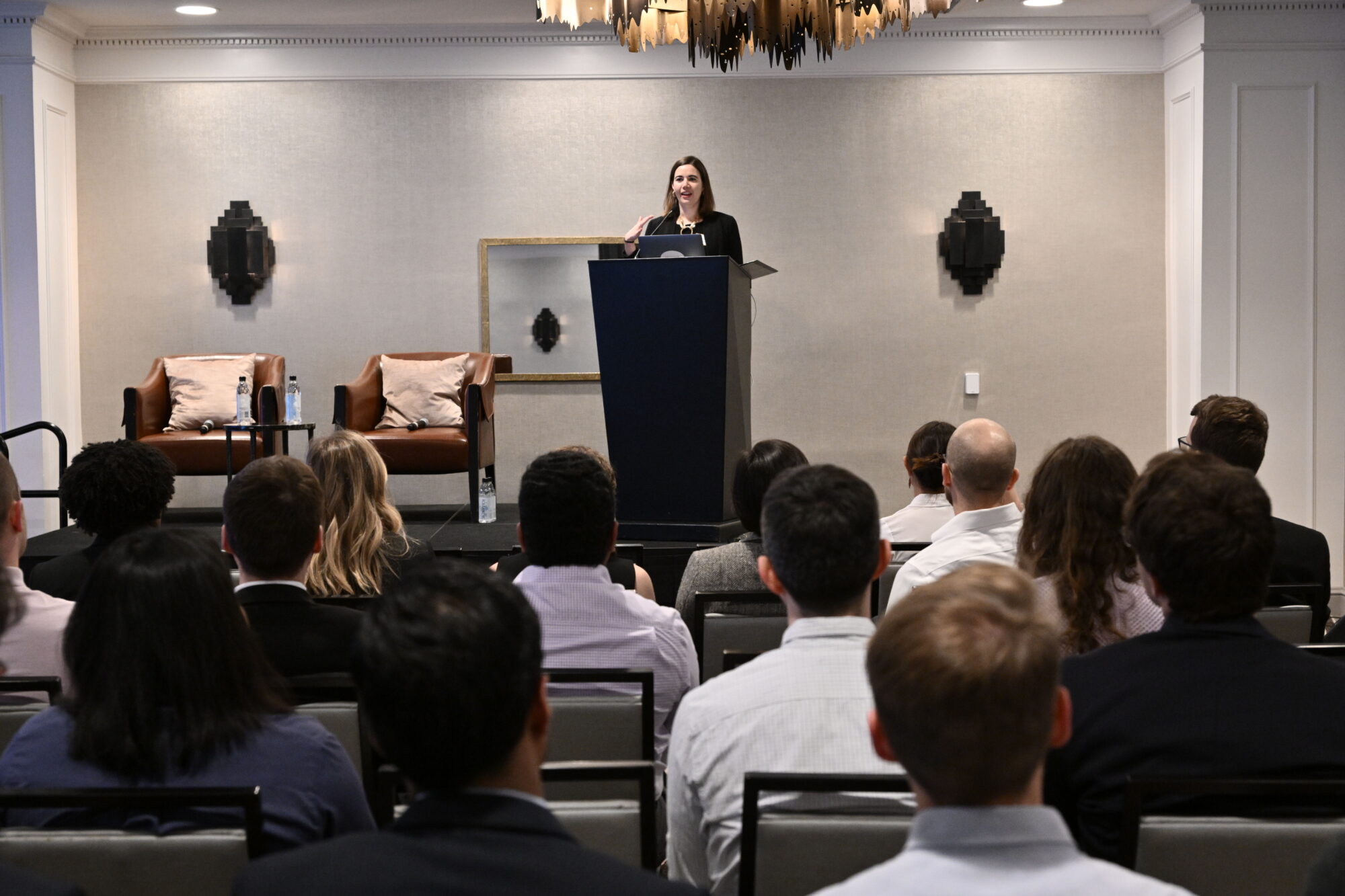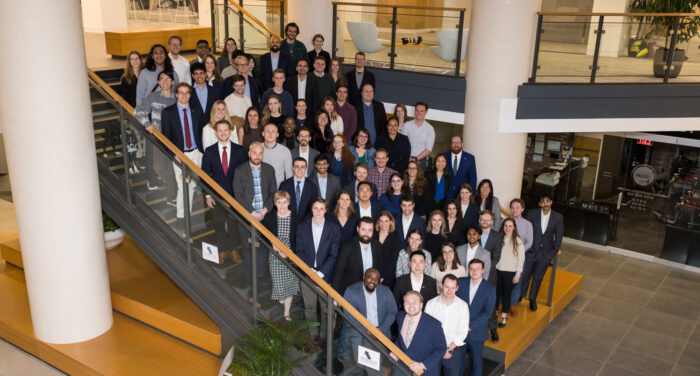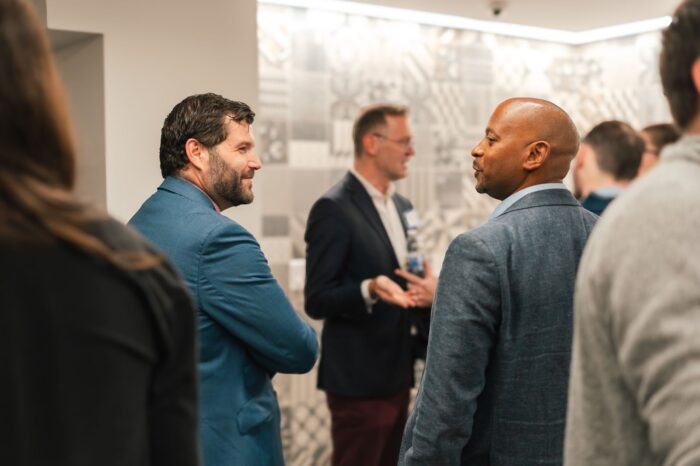
Apply for the AI Innovation & Security Policy Workshop
Interested in whether you should pursue a career in AI policy in DC? Learn about AI policy under the new administration, meet the people shaping decisions in DC, and decide whether you want to apply your background to the opportunities and challenges ahead.
Applications for the workshop closed on May 4, 2025. Thank you for your interest, and if you would like to be notified of similar opportunities in the future, please complete our Career Interest Form here.
Co-hosted by the Horizon Institute for Public Service and the Foundation for American Innovation.
Program overview
- Dates: July 11-13, 2025 (Friday-Sunday)
- Location: Washington, DC
- Format: Interactive sessions with AI policy experts focused on current issues and career opportunities
- Cost: All travel and accommodation expenses covered
The US government plays a critical role in developing and governing new technologies. As we continue rapidly hitting new milestones in AI capabilities, policymakers face complex questions across a wide variety of domains — from managing data centers’ increased energy demands to testing cutting-edge AI systems and maintaining America’s technological edge. Without access to talent with AI expertise, it’s easy for policymakers to get it wrong. Now more than ever, DC needs technologists, researchers, and industry experts to contribute their insights.
The AI Innovation & Security Policy Workshop is designed to facilitate just that. Over three days in Washington, DC, participants with an interest in AI-relevant fields will connect with policymakers to explore the biggest opportunities and challenges in AI policy and, crucially, how they can play a role in shaping its future.
This workshop is specifically designed for professionals considering career transitions into AI policy. No prior policy experience is required. We welcome technologists, researchers, industry experts, and other professionals who bring valuable domain knowledge but may be unfamiliar with policy processes or government. Through hands-on sessions, expert panels, and networking opportunities, participants will gain practical insights into policy careers and develop the skills needed to effectively bridge the gap between the technology and policy worlds.
Whether you’re already mapping out a career shift or just beginning to consider how your expertise might contribute to policymaking in DC, this workshop will provide you with the foundation to make informed decisions about your professional future.
What you can expect
- Dive into the critical issues of AI innovation and security policy, including:
- Federal R&D funding and market-shaping tools
- National security applications and implications of AI
- Energy production and grid capacity for data centers
- Global technological competition, export controls, and China’s AI ecosystem
- Copyright and intellectual property issues
- Model testing and evaluation frameworks
- The intersection of AI, cyber security, and critical infrastructure
- Hear directly from policy experts in DC about the latest developments and debates in AI policy
- Build connections with fellow participants and policymakers who are shaping the future of AI policy
- Gain practical insights into how you can contribute to AI policy discussions and transition into policy work, including learning about fellowship and other pathway programs and meeting hiring managers at government offices and nonprofits
Speakers
Samuel Hammond, Foundation for American Innovation | Samuel Hammond is Chief Economist at the Foundation for American Innovation, where his research focuses on artificial intelligence and the institutional impact of emerging technologies. Prior to FAI, Hammond worked as the director of social policy for the Niskanen Center, where he remains a senior fellow; as an economist for the Government of Canada specializing in regional economic development; and as a graduate research fellow for the Mercatus Center at George Mason University. |
Joel Burke, Mozilla | Joel Burke is a Senior Policy Analyst at Mozilla, where he focuses on AI, privacy, and national security. He is also the author of the book Rebooting a Nation: The Incredible Rise of Estonia, E-Government, and the Startup Revolution. Prior to joining Mozilla, Burke was a Horizon Fellow working in the office of Senator Mike Rounds (R-SD). Previously, he worked in a variety of roles and geographies including in Estonia as Head of Business Development for e-Residency; in Cameroon at a local startup via Venture for Africa; as a Partner at Tribe.AI, a managed marketplace for top AI talent; and leading a venture for a Rocket Internet AG subsidiary in Berlin. He started his career at a YC and Andreessen Horowitz backed startup. |
Sophia Brown, Foundation for American Innovation | Sophia Brown is the Director of Policy Programs at the Foundation for American Innovation. She is also a Senior Advisor at the Horizon Institute for Public Service, where she previously worked as Director of Strategy and Partnerships and Chief of Staff. Prior to joining Horizon, Brown was Chief of Staff at fp21, a think tank focused on State Department modernization. She has also worked at the Hudson Institute and Atlantic Council. |
Lennart Heim, RAND Corporation | Lennart Heim is an associate information scientist at RAND, where he leads the Global and Emerging Risks division’s compute research team, and a professor of policy analysis at the Pardee RAND Graduate School. Heim’s publications cover the impacts and governance of advanced AI systems and empirical trends in machine learning, such as compute, data, and AI hardware. He is also an adjunct fellow at the Centre for the Governance of AI, a member of the OECD.AI Expert Group on AI Compute and Climate, a pro forecaster at INFER Pub, and an advisor to Epoch, an organization investigating the trajectory of AI. Previously, he worked as a researcher at the Centre for the Governance of AI and as a machine learning researcher at ETH Zürich. |
| Neil Chilson is the Head of AI Policy at the Abundance Institute, where his work focuses on creating a policy and cultural environment where emerging technologies including AI can develop and thrive in order to perpetually expand widespread human prosperity. He is a lawyer, computer scientist, and author of the book Getting Out of Control: Emergent Leadership in a Complex World. Previously, Chilson was a Senior Research Fellow at the Center for Growth and Opportunity, worked at the major philanthropic community Stand Together, and served as the Chief Technology Officer at the Federal Trade Commission advising Acting Chairman Maureen Ohlhausen on privacy, blockchain, and related telecommunications issues. | |
| Ryan Arant is the director of the N7 Initiative at the Atlantic Council’s Middle East Programs. Prior to joining the Atlantic Council, he served in a variety of roles in government, including at the Department of State, Department of Defense, and the White House. During the first Trump administration, Arant served at the National Security Council and National Economic Council, where he played key roles in the negotiation of the Abraham Accords agreements and in reshaping US economic and security policy toward China. He has also worked as a project manager of a multidisciplinary team that developed AI privacy protection systems in collaboration with IARPA, the intelligence community’s research agency, and as a management consultant at Accenture. | |
Ella Guest, RAND Corporation | Ella Guest leads AI capability evaluations in the Technology and Security Policy Center at RAND. Her work focuses on developing technical and policy interventions to address large-scale risks posed by frontier AI systems. Guest was previously a technology advisor at the Competition and Markets Authority, the UK’s competition regulator; a research associate at the Alan Turing Institute, the UK’s national institute for data science and AI; and a policy researcher at the Centre for Data Ethics and Innovation, an advisory body to the UK government on trustworthy use of data and AI. She has a PhD in social statistics from the University of Manchester. |
Satya Thallam, Foundation for American Innovation | Satya Thallam is a Senior Fellow at the Foundation for American Innovation and a Senior Advisor at American for Responsible Innovation, where he was previously Senior Vice President for Government Affairs. During the first Trump Administration, Thallam served in the Office of Management and Budget as Senior Counselor focused on regulatory oversight and reform. Prior to that, he worked as Chief Economist and Policy Advisor in the Senate Committee on Homeland Security and Governmental Affairs. He has also been an executive at a biotechnology startup and worked across a variety of think tanks in leadership and policy roles. |
Participants will receive a full agenda and list of speakers prior to arrival in DC.
Who should apply?
We welcome US citizens from all backgrounds and experience levels interested in AI policy careers. No prior policy experience is required. Whether you’re a seasoned researcher, founder, engineer, or have a relevant background in economics, industry, law or similar field, we encourage you to apply.
In past events, participants have included engineers at major tech companies, AI labs, and hardware startups; PhD students in machine learning, international relations, life sciences, economics, and other fields; US naval officers and other military personnel; analysts at trading firms and consultancies; technology-focused law students and associates at law firms; and exceptional undergraduates from universities around the country.
What will you get out of it?
Participants report having benefited greatly from previous policy workshops. More than 90% of participants report that these events help them shape their career decisions, the vast majority of whom felt more motivated and better able to pursue exciting opportunities in policy.
What past participants have said:
- “Horizon gave me the confidence to change my career and move to DC to work in government. I also gained a new network of friends and learned about emerging tech.”
- “It was the first domino that opened the other doors. I think I might have been able to find and apply for some fellowships eventually, but would I have been able to have conversations to position myself best to do so or be most competitive? I doubt it.”
- “The workshop helped give me a sense of what it’s like to do policy work and ultimately made me feel more excited about making the career pivot.”
- “The workshop was my first step into my new career trajectory and it was inspiring to hear from such amazing speakers and meet like-minded peers.”
- “I doubt I would have made the transition into policy without the Horizon workshop.”
Application process
Applications closed on May 4th, 2025. Candidates who advance may be asked for additional materials and an interview.
Selected participants will be notified of their acceptance by June 4th 2025. The workshop will take place July 11th-13th.
Can’t make it to this workshop? Fill out our career support form to stay up to date on other opportunities in emerging technology policy. Horizon programs include career coaching, in-person workshops, online seminar series, fellowships, and more.
About Horizon
The Horizon Institute for Public Service is a 501(c)(3) non-profit that helps the US government navigate our era of rapid technological change by supporting the next generation of emerging technology policy talent. In service of this mission, Horizon runs a number of programs, including workshops and events, a policy careers guide, career advising services, and a fellowship program.
About FAI
The Foundation for American Innovation (FAI), a 501(c)(3) nonprofit think tank, develops technology, talent, and ideas that support a better, freer, and more abundant future. FAI’s work is rooted in an optimistic vision for the future, in which technology is aligned to serve human ends: promoting individual freedom, supporting strong institutions, advancing national security, and unleashing economic prosperity.



